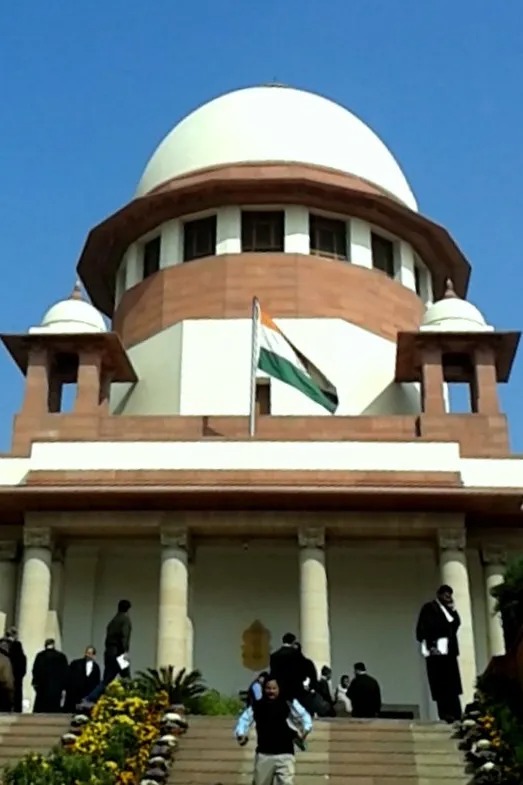
Supreme Court: High Courts Cannot Hold Mini Trials to Quash FIRs; Omissions in Complaints Not Enough
Apex Court says FIR quashing must be based on clear legal grounds, not premature evaluation of evidence
Ruling strengthens fair investigation process and limits judicial interference at early stages
Also Read: Delhi High Court Rules Algorithm-Based Inventions Not Patentable Under Indian Law
By Our Legal Reporter
New Delhi: November 08, 2025:
In a landmark judgment, the Supreme Court of India has held that High Courts cannot conduct a mini trial while considering petitions to quash First Information Reports (FIRs). The Court emphasized that omissions or contradictions in earlier complaints cannot be treated as sufficient grounds to quash an FIR.
This ruling is expected to have a major impact on criminal jurisprudence, as it clarifies the scope of judicial review under Section 482 of the Code of Criminal Procedure (CrPC), which empowers High Courts to quash criminal proceedings in certain circumstances.
Also Read: Supreme Court Calls for Blockchain in Land Registrations to End Property Purchase Troubles
Background of the Case
The case arose when an accused approached the High Court seeking quashing of an FIR, arguing that the allegations were inconsistent with earlier complaints. The High Court examined the merits of the case and attempted to evaluate evidence at a preliminary stage. The matter reached the Supreme Court, which observed that such an approach amounted to conducting a “mini trial”—something that is impermissible at the stage of FIR quashing.
Key Observations by the Supreme Court
- No Mini Trials: High Courts cannot evaluate evidence or conduct detailed fact-finding while deciding quashing petitions.
- Omissions Not Grounds: Contradictions or omissions in earlier complaints cannot automatically invalidate an FIR.
- Limited Scope of Section 482 CrPC: The power to quash FIRs must be exercised sparingly and only when allegations clearly do not disclose any offence.
- Fair Investigation: Courts must allow investigating agencies to complete their probe before evidence is tested.
Also Read: Profits from Inflated Shares Are Proceeds of Crime Under PMLA
Why This Matters
- Ensures that investigations are not prematurely halted.
- Prevents courts from overstepping their role by evaluating evidence too early.
- Protects the rights of victims and complainants by allowing full investigations.
By limiting judicial interference, the Court has reinforced that criminal trials must be conducted through due process, ensuring a fair and impartial system.
Also Read: Legislature Cannot Override Court Judgments, But Can Fix Legal Defects Through Amendments
Legal Context
- Section 482 CrPC: Grants inherent powers to High Courts to quash proceedings to prevent abuse of process or secure justice.
- Judicial Precedents: Previous rulings have held that quashing is permissible only when allegations are absurd, inherently improbable, or fail to disclose any offence.
- Supreme Court’s Clarification: High Courts cannot act as trial courts at the FIR stage.
Expert Reactions
Legal experts welcomed the ruling, noting that it will prevent misuse of quashing petitions. Senior advocates pointed out that the judgment strengthens the investigative process and ensures that evidence is tested during trial, not prematurely. Activists praised the ruling for protecting victims from early dismissal of their complaints.
Also Read: High Courts Cannot Hold Mini Trials to Quash FIRs; Omissions in Complaints Not Enough
Broader Implications
- For Accused: Cannot rely solely on omissions in complaints to seek quashing.
- For Victims: Complaints will be taken seriously and investigated fully.
- For Courts: Provides clear guidance on limits of judicial review at the FIR stage.
Challenges Ahead
- Ensuring consistent application by all High Courts.
- Completing investigations promptly to avoid undue delay.
- Balancing protection for accused and justice for victims.
Conclusion
The Supreme Court’s ruling that High Courts cannot conduct mini trials to quash FIRs marks a milestone in India’s criminal law. By clarifying that omissions in earlier complaints are not enough to quash cases, the Court reinforces fair investigation and proper trial procedure. This ensures justice for both accused persons and victims, strengthening public trust in the judiciary.
Also Read: Quick Checklist: Start a Company in the USA from India